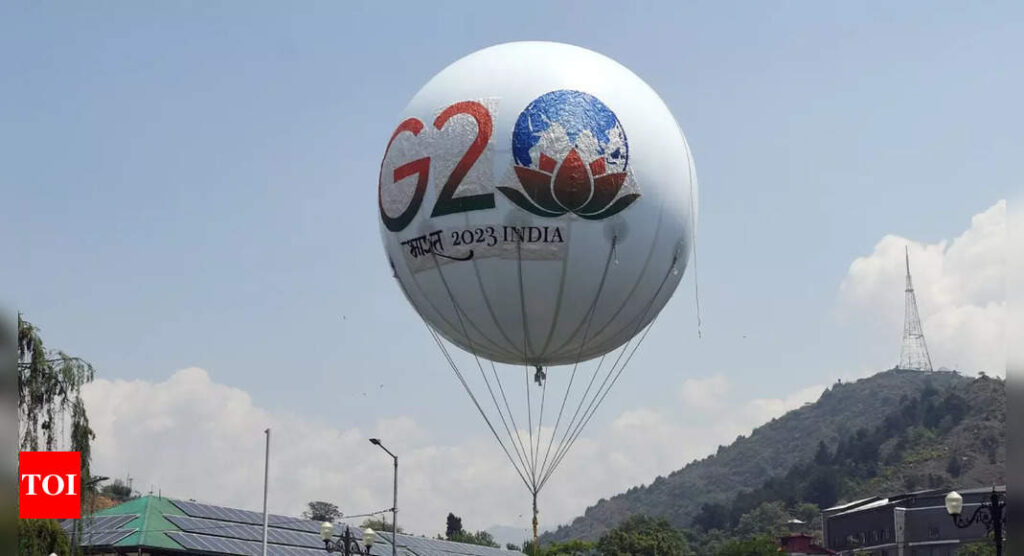[ad_1]
Trade ministers from G20 nations agreed to a ‘Jaipur Call for Action’ to boost information flow to small businesses to increase their participation, while seeking to build a ‘generic framework’ for mapping global value chains, cautioning against concentration of suppliers and markets.
In addition, 10 high level principles on digitisation of trade documents were also agreed upon as countries seek to reduce the cost of trading across borders.
Although a communique could not be issued given the divergent position on Ukraine with Russia and China sticking to their stands, and the G7 seeking to highlight the conflict, commerce and industry minister Piyush Goyal told reporters that the contents of the outcome document and the chairs summary were decided unanimously.
“Every country has agreed to all the issues… only paragraph 32, which is less than a quarter of a page out of a 17-page document, is an area where we could not get consensus for obvious reasons,” the minister said. Since the first G20 ministerial meeting under India’s presidency, a meeting of finance ministers and central bank governors in Bengaluru, the Ukraine conflict has driven a wedge between the members of the all-powerful alliance.
In the coming years, Goy al said, various agencies will work on putting together the framework to implement the decisions. The move on global value chains, Goyal said, will help all developing countries and cited the example of mobile manufacturing in India, arguing that it will help create a production eco-system and also generate jobs and investment.
The minister underlined the importance of MSMEs, an issue that was flagged by PM Narendra Modi on Thursday.
“There are concerns over Big Tech and its dominance. Equal and affordable access for all has to be ensured,” he said at the closing press conference. The push is in line with the government’s initiatives such as ONDC and UPI, which are open source frameworks offering ease to consumers as well as a level playing field to businesses.
The outcome document took note of the uncertain near-term outlook for global trade and investments and underlined the need for “rules-based, non-discriminatory, fair, open, inclusive, equitable, sustainable and transparent multilateral system, with WTO at its core”.
It also called for a predictable and transparent regime for services trade, with easier rules for movement of professionals across borders —an issue which is of particular interest to India.
In addition, 10 high level principles on digitisation of trade documents were also agreed upon as countries seek to reduce the cost of trading across borders.
Although a communique could not be issued given the divergent position on Ukraine with Russia and China sticking to their stands, and the G7 seeking to highlight the conflict, commerce and industry minister Piyush Goyal told reporters that the contents of the outcome document and the chairs summary were decided unanimously.
“Every country has agreed to all the issues… only paragraph 32, which is less than a quarter of a page out of a 17-page document, is an area where we could not get consensus for obvious reasons,” the minister said. Since the first G20 ministerial meeting under India’s presidency, a meeting of finance ministers and central bank governors in Bengaluru, the Ukraine conflict has driven a wedge between the members of the all-powerful alliance.
In the coming years, Goy al said, various agencies will work on putting together the framework to implement the decisions. The move on global value chains, Goyal said, will help all developing countries and cited the example of mobile manufacturing in India, arguing that it will help create a production eco-system and also generate jobs and investment.
The minister underlined the importance of MSMEs, an issue that was flagged by PM Narendra Modi on Thursday.
“There are concerns over Big Tech and its dominance. Equal and affordable access for all has to be ensured,” he said at the closing press conference. The push is in line with the government’s initiatives such as ONDC and UPI, which are open source frameworks offering ease to consumers as well as a level playing field to businesses.
The outcome document took note of the uncertain near-term outlook for global trade and investments and underlined the need for “rules-based, non-discriminatory, fair, open, inclusive, equitable, sustainable and transparent multilateral system, with WTO at its core”.
It also called for a predictable and transparent regime for services trade, with easier rules for movement of professionals across borders —an issue which is of particular interest to India.
[ad_2]
Source link











More Stories
India’S Growth Forecast: S&P ups India’s FY’24 growth forecast to 6.4% on robust domestic momentum
India to remain fastest-growing major economy, but demand uneven: Poll
Jack Ma: Jack Ma gets back into business with ‘Ma’s Kitchen Food’